Aamer Rahman – Reverse Racism
Sadly it’s true.
Published on?28 Nov 2013
aamerrahman.tumblr.com
Twitter: @aamer_rahman
Bookings: bec.sutherland@livenation.com.au
Musings by Shahidul Alam
Sadly it’s true.
Published on?28 Nov 2013
aamerrahman.tumblr.com
Twitter: @aamer_rahman
Bookings: bec.sutherland@livenation.com.au
The faux red carpet had been laid out for the famous and the wannabe-famous. Politicians and journalists arrived at the White House Correspondents’ Dinner, bedazzled in the hopes of basking in a few fleeting moments of fame, even if only by osmosis from proximity to celebrities. New to the Washington scene, I was to experience the spectacle with my husband, a journalist, and enjoy an evening out. Or at least an hour out. You see, as a spouse I was not allowed into the actual dinner. Those of us who are not participating in the hideous schmooze-fest that is this evening are relegated to attending the cocktail hour only, if that. Our guest was the extraordinarily brilliant Oscar-nominated director of?Beasts of the Southern Wild, Benh Zeitlin. Mr. Zeitlin’s unassuming demeanor was a refreshing taste of humility in a sea of pretentious politicians reeking of narcissism. Continue reading “My Racist Encounter at the White House Correspondents' Dinner”
Yasmin Alibhai-Brown
Sunday 05 August 2012
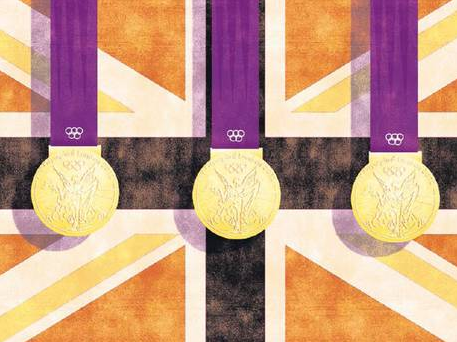
Jesus! More multicultural crap! More bleedin’ foreigners winning our medals! Even cheering with indecent enthusiasm for Team GB! Who the hell do they think they are? And what the hell happened to this great nation? Tory MP Aidan Burley, an immigrant from New Zealand, dissed Danny Boyle’s inclusive opening ceremony in a tweet. By now he must be spitting his (probably whitened) teeth. So too the risible journos who’ve been whinging about “plastic Brits” in the team, an obnoxious term invented for competitors not born in the UK. Like the South African Zola Budd, a white athlete who, during Apartheid, was given British nationality so she could run for Britain. The Daily Mail made it all happen for that “plastic Brit”. But today intolerant right-wingers question the motives of non-indigenous sportspeople and are furious they have been chosen to represent the UK. Continue reading “Anyone who now thinks Britain is too multicultural?”
As Black History Month 2012?which carries the theme: ?Black Women in American Culture & History? ?comes to a close, it?s a good time to reflect on the profound influence so many African-American women have had on our country. Among the legends who have inspired so many are poets like Gwendolyn Brooks and Maya Angelou, actresses such as Hattie McDaniel, Dorothy Dandridge and Halle Barry, playwrights and writers like Lorraine Hansberry and Toni Morrison, world-class athletes like Althea Gibson and Wilma Randolph, pioneers like astronaut Mae Jemison and Surgeon General M. Jocelyn Elders, and soul-stirring singers like Etta James, Aretha Franklin and the gone-too-soon Whitney Houston.
Their words, their music, their achievements have moved millions, including me, generating headlines and adoration and awards along the way. Not so recognized are the millions of African-American women who have made their own mark in a world where there have been too many barriers for too long, too often built to hold back people of different races, religions, genders, cultures and sexual orientations.
The older I get, the less patience I have when it comes to tearing down those barriers. Creating a diverse and inclusive world is not something that should be debated but embraced. Our industry has made great strides, but it is taking too long to achieve unfettered inclusion.
Like the women already mentioned, Rosa Parks will always be a superstar in my eyes. She started a revolution when she refused to stand so a white person could sit on a Montgomery, AL bus on December 1, 1955. Her nonviolent stance led to her arrest, but ultimately to greater freedom for the masses.
Rosa?s act of civil disobedience and the resulting legislation that turned the country toward a more righteous course was a massive testament to the power of what I refer to as ?dignified intolerance.?
Rosa Parks had simply had enough. Anyone who has ever felt the sting of discrimination knows what she must have felt. While much progress has been made in the 56 years since that fateful bus ride, staggeringly?even as the U.S. Census Bureau repeatedly shows minorities will be this country?s majority by 2030?the world remains awash in discrimination. It is about time we graciously refuse to give in to the demands of the shrinking majority and press the fight for inclusion of all people, no matter their race, religion, gender, physical or mental abilities or sexual orientation.
We must more aggressively challenge inequities in our industries and the communities in which we live. We must also be more demanding when it comes to challenging one another so that we can effect real change in our lifetimes
I believe that if we join up the individual efforts of each diversity group, we can be stronger, louder and more effective in transforming any momentum into a movement.
I recently proclaimed at Draftfcb that by 2014 we will be an organization that no longer uses the term ?diversity and inclusion.? We are working tirelessly, from the C-suite to the intern ranks, to foster an atmosphere of inclusion, where everyone is empowered to reach great heights.
As an industry, we all need to embrace diversity and make sure inclusion becomes our rallying cry. A new generation is already recognizing that the ?new mass? rejects outdated stereotypes regarding color, gender and sexual orientation. They are cross-cultural and cross-behavioral. Our industry needs to follow suit. It?s not just the right thing to do; it will also boost our bottom line. Companies that don?t mirror the dramatic shifts in our population simply will not survive.
To my fellow CEOs and C-suite executives, change starts with us. We must work together to start a joint uprising that will not tolerate discrimination and exclusion. We must lead by example and mentor our future leaders, instilling in them the knowledge that they should pursue paths they might have thought closed to them. We must tirelessly practice what we preach and prove to the marketplace that we are current, relevant and represent the diverse constituents in the New America we are trying to influence.
That is my stake in the ground. Please add your stakes to mine. Let?s get this movement rolling. It would be an achievement that might just prove to matter most.
Media Lens, London, 18 January 2012
One might think that a corporate media system would act independently of the state ? there is no formal mechanism of control. But as the ingrained bias sampled above indicates, this often turns out not to be the case. With regard to human rights, for example, corporate media typically do not simply pick a subject and lavish it with attention. Rather, political power selects an issue, frames the coverage, and media corporations jump on the bandwagon.
Type a household name like ?Halabja? into the UK media database search engine Lexis-Nexis, for example, and it produces more than 1,800 references to Saddam Hussein?s 1988 gassing of Kurds. Similarly, the words ?Srebrenica? and ?massacre? generate nearly 3,000 hits. Both issues have been afforded vast, impassioned coverage.
In truth, for Western commentators, the importance of these horrors is most often rooted, not in the scale of suffering inflicted, but in their utility for justifying the West?s military interventions. Thus an editorial
?Concern was real enough that a Srebrenica-style massacre could unfold in Benghazi, and the UK Government was right to insist that we would not allow this.? (Leading article, ?The mission that crept,? Independent, July 29, 2011) Continue reading “?Get Out, Black Animals?: what happened in Tawergha, Libya”

Maccabi Haifa striker Mohammed Ghadir believes that he and Beitar Jerusalem, the bad boy of Israeli soccer, are a perfect match.
“I am well suited to Beitar, and that team would fit me like a glove. I have no qualms about moving to play for them,” Mr. Ghadir is quoted by Israeli daily Ha?aretz as saying. Beitar has a large squad, a significant fan base, wide media coverge and lacks talented strikers, he says.
There is only one hitch: Beitar doesn?t want Mr. Ghadir. Not because he?s not an upcoming star and not because they wouldn?t need a player like Mr. Ghadir but because the striker is an Israeli Palestinian. “Our team and our fans are still not ready for an Arab soccer player,” Ha?aretz quotes Beitar?s management as saying. The club prides itself on being the only top league Israeli club to have never hired a Palestinian player in a country whose population is for 20 per cent Palestinian and in which Palestinians play important roles in most other top league teams. Continue reading “Taking Beitar to task: Mohammed Ghadir”
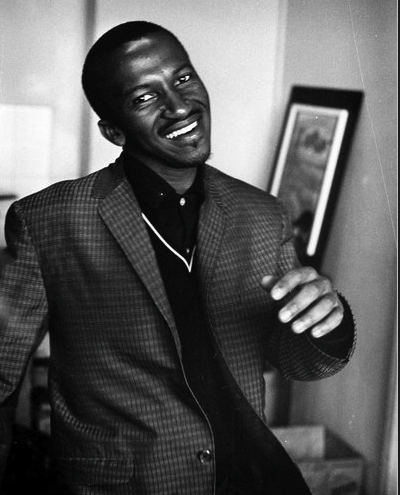
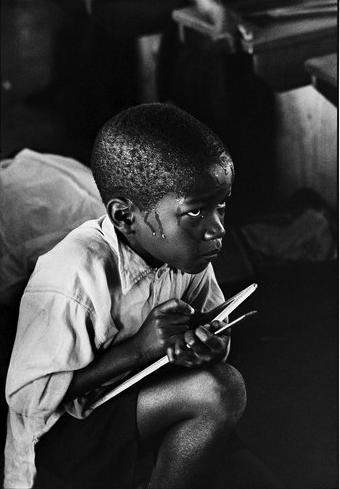
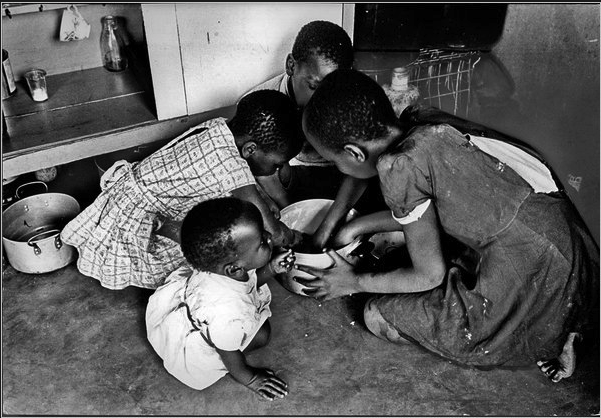
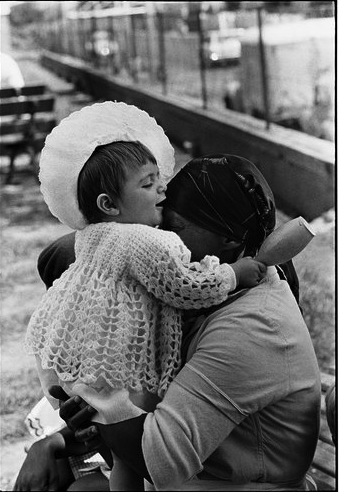

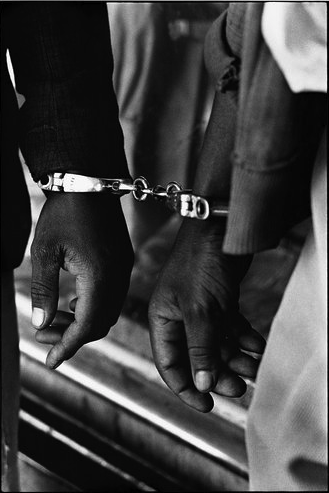
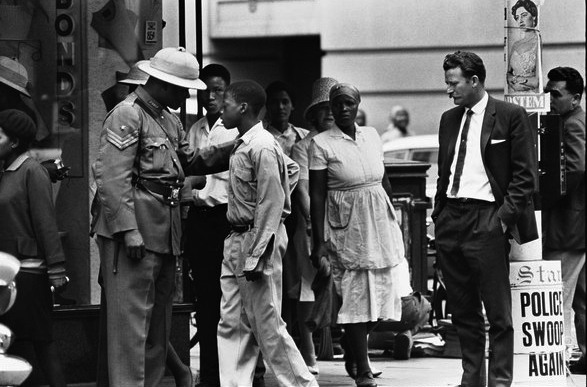
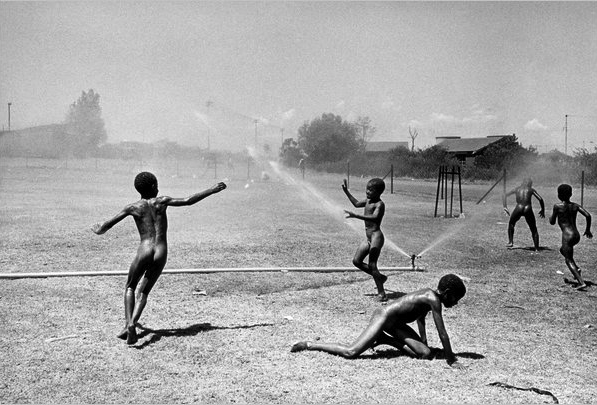
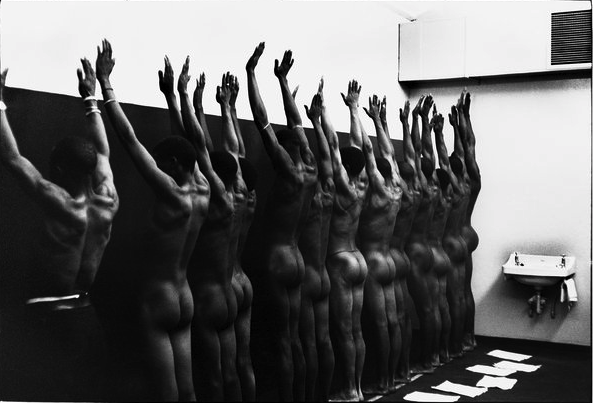
Fellow South Africans:
The day should be a day of celebration and joy. After all, today is National Women’s Day as well as the historic day when we return the remains of Sarah Bartmann to the land she walked as a child and a young woman.
Difficult as it may be, we must still celebrate. But we could not be human and not be deeply saddened and weighted down with grief as we reflect on the short life of Sarah Bartmann who has, at last, returned to her people.
This occasion can never be a solemn ceremony in which we bury her remains and bury the truth about the painful circumstances of her death as well.
To this day, 186 years after she died, we feel the pain of her intolerable misery because she was on us and we, of her. When we turn away from this grave of a simple African woman, a particle of each one of us will stay with the remains of Sarah Bartmann.
We cannot undo the damage that was done to her. But at least we can summon the courage to speak the naked but healing truth that must comfort her wherever she may be.
I speak of courage because there are many in our country would urge constantly that we should not speak of the past, They pour scorn on those who speak about who we are and where we come from and why we are where we are today. They make bold to say the past is no longer, and all that remains is a future that will be.
But, today, the gods would be angry with us if we did not, on the banks of the Gamtoos River, at the grave of Sarah Bartmann, call out for the restoration of the dignity of Sarah Bartmann, of the Khoi-San, of the millions of Africans who have known centuries of wretchedness.
Sarah Bartmann should never have been transported to Europe.
Sarah Bartmann should never have been robbed of her name and relabeled Sarah Bartmann. Sarah Bartmann should never have been stripped of her native, Khoi-San and African identity and paraded in Europe as a savage monstrosity.
As the French Parliament debated the matter of the return of the remains of our Sarah to her native land, the then Minister of Research, Roger-Gerard Scwartzenberg said: “This young woman was treated as if she was something monstrous. But where in this affair is the monstrosity?”
Indeed, where did the monstrosity lie in the matter of the gross abuse of a defenceless African woman in England and France! It was not the abused human being who was monstrous but those who abused her. It was not the lonely African woman in Europe, alienated from her identity and her motherland who was the barbarian, but those who treated her with barbaric brutality.
Among the truly monstrous were the leading scientists of the day, who sought to feed a rabid racism, such as the distinguished anatomist, Baron Georges Cuvier, who dissected Sarah’s body after her death. It is Cuvier who said after he had dismembered her:
“The Negro race… is marked by black complexion, crisped of woolly hair, compressed cranium and a flat nose, The projection of the lower parts of the face, and the thick lips, evidently approximate it to the monkey tribe: the hordes of which it consists have always remained in the most complete state of barbarism…. These races with depressed and compressed skulls are condemned to a never-ending inferiority… Her moves had something that reminded one of the monkey and her external genitalia recalled those of the orang-utang.”
It was the distinguished Baron who wrote:
“The white race, with oval face, straight hair and nose, to which the civilised people of Europe belong and which appear to us the most beautiful of all, is also superior to others by its genius, courage and activity, (And that there is a) cruel law which seems to have condemned to an eternal inferiority the races of depressed and compressed skulls… and experience seems to confirm the theory that there is a relationship between the perfection of the spirit and the beauty of the face.”
Almost two centuries later, an honourable Member of the Parliament of France, Jean Dufour, sided with the truth and said:
“Enslaved, exploited, shown as an animal, (Sarah) was dissected by scientists who wanted first and foremost to confirm their theory of the superiority of a race over the others.”
A German predecessor of the Baron Cuvier, Johann Winckelmann, a priest and art historian, had stated the batter boldly, thus:
“The European, called by destiny to run the empire of the globe which he knows how to enlighten by his intelligence, tame by his abilities, is man par excellence; the others are nothing but hordes of barbarians.”
It was as one among these barbaric hordes that Sarah Bartmann was sucked into evil purposes pursued by those who defined themselves as a “man par excellence”, with a manifest destiny to enlighten and to tame.
When she died, Sarah Bartmann had indeed been enlightened about the ways and the barbarism of “man par excellence”. But she was not tamed.
Continue reading “Speech at the Funeral of Sarah Bartmann”
Subscribe to ShahidulNews
![]()
HAIDAR EID ? AN OPEN LETTER TO MR. JACOB ZUMA, PRESIDENT OF SOUTH AFRICA
10 September, 2009 ??Palestine Chronicle
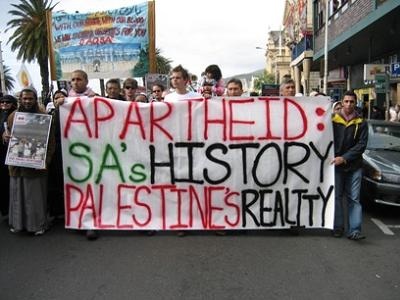
Dear Mr. President,
I am writing to express my dismay and disappointment with both your attendance at the national conference of the South African Jewish Board of Deputies ? a racist organization by any standards ? as well as the content of your speech at that forum.
I am a naturalised South African of Palestinian origin. I spent more than five years in? Johannesburg, during which I earned a PhD from the University of Johannesburg and lectured at the-then Vista University in Soweto and Rand Afrikaans University in Johannesburg.
I would like to take issue with the manner in which you express your support for the two-state solution: ?It is a solution that fulfils the aspirations of both parties for independent homelands through two states for two peoples, Israel and an independent, adjoining, and viable state of Palestine? (emphasis mine). Allow me, Mr. President, as a resident of Gaza, to express my shock with the fact that ? only 8 months after the Gaza massacre, in which 1500 civilians, including 434 children, were brutally murdered ? you still believe that there are two symmetrical sides. You even call it the ?Israeli-Palestinian conflict!? Was that your belief in the 1970?s and 80?s; that there were ?two-sides? to the South African ?conflict?? Were there two equal parties, namely White and Black, with equal claim to the land and equal historical responsibility for the-then status quo? No doubt, this sounds like a bizarre interpretation of South African history?and one which we Palestinians find equally astounding when applied to our history and our reality today.
Mr. President, these words of yours are even more disturbing, given your own involvement in the commendable struggle against the brutal, anti-human apartheid system and the notion of ?independent homelands? which were based on the separation of human beings. Your struggle as Black South Africans, was morally superior to apartheid because it was inclusive where apartheid focused on separation; it was embracing where apartheid focused on division; it was life-affirming where apartheid was violent and murderous.
The South African anti-apartheid goal, adopted by anti-apartheid activists all around the world was unequivocal: the end of the racist system and ideology of apartheid. There could be no toenadering (rapprochement) with apartheid ideologues; no creation of homelands and puppet leaders: the system had to be dismantled in its entirety. Many South Africans supported by a sustained global anti-apartheid campaign, sacrificed their lives to bring down the Bantustansan euphemistically, called independent homelands by the apartheid regime.? Mr. President, Steve Biko, Oliver Tambo, Chris Hani, the Mxenges, the Slovosac to mention but a few anti-apartheid heroes must have listened to the speech to the JBD and wondered what happened to the universal values and human rights espoused by the ANC.
Comrade Jacob (if I may),
I would like to brief you on the nature of the powerful party, i.e. Israel ? with whom your post-apartheid government still, amazingly, maintains exceptional diplomatic and economic ties.
Unlike the new post-apartheid South Africa, which you helped to create, in the State of Israel all human beings are NOT equal. There are fundamental artificially created and selectively rewarded? a level of of citizens in the state. Israel defines itself as a Jewish State. It, therefore, creates a bizarre distinction between ?nationality? and ?citizenship.? Almost 22% of the citizens of Israel are Palestinians who are excluded from such a definition. Israel thus, by definition is NOT the state of its citizens, but rather that of ?The Jewish People?, most of whom, like the members of JBD whom you were addressing, have no birthright connection to it. The question which begs an answer is what the status of those Palestinian citizens in a Jewish state is? The answer is, as every single ? to use a word you must abhor ?non-white? South African knows: Racism.
The delegates at the national conference of the South African Jewish Board of Deputies, Jewish, but at the same time, South African citizens ?enjoy full rights? in Israel, rights that apartheid Israel denies to us, the indigenous people of this land. They also call us ?Israeli Arabs?,? ?Jerusalem residents?, ?Arabs of the territories?, not to mention the refugees living in the Diaspora, whose mere mention always spoils any party, and whose right to return and compensation is sanctioned by International Law (UNGA resolution 194).
Israeli nationality, therefore, is non-existent. Instead, there is ?Jewish Nationality?. To make such a bizarre term comprehensible, think of ?White Nationality? as opposed to South African. In your speech before the JBD, you state very eloquently that ?(m)uch as we are conscious of who we are culturally and otherwise, it must not take away the national identity, as we should be South Africans first?.
The International Convention on the Suppression and Punishment of the Crimes of Apartheid, Article 2, Part 3, clearly defines apartheid as:
?[a]ny legislative measures and other measures calculated to prevent a racial group or groups from participation in the political, social, economic and cultural life of the country and the deliberate creation of conditions preventing the full development of such a group or groups, in particular by denying to members of a racial group or groups basic human rights and freedoms, including the right to work? the right to education, the right to leave and return to their country the right to a nationality, the right to freedom of movement and residence.?
This definition, in its entirety, clearly applies not only to the Palestinian people residing in the West Bank and Gaza Strip, but also those living in Israel itself. This is precisely the reason that the UN Special Rapporteur on the Human Rights Situation in the Occupied Territories, a fellow South African, John Dugard, concluded that ?the 1973 International Convention on the Suppression and Punishment of the Crime of Apartheid appears to be violated by many practices?.
If you were born to Palestinian parents living in Israel ? a fate you have been spared, Mr. President ? you too would be denied the rights of? ?Jewish Nationality? and been forced to submit to institutionalized inferiority or choose to resist it.
Furthermore, ICSPCA (quoted above), Article 2, Part 4, makes it crystal clear that:
?[t]he term ?the crime of apartheid?,? shall apply to ?any measures including legislative measure, designed to divide the population along racial lines by the creation of separate measures and ghettos for the members of a racial group or groups The expropriation of landed property belonging to a racial group or groups or to members thereof..?
Comrade Jacob, the word apartheid never appears once in your speech before the JBD! A listener would never know that you were speaking to an audience who actively support apartheid in another country.
Did you know that racist laws used to forbid Black property ownership in white areas in apartheid South Africa are in force in apartheid Israel? Indigenous Palestinian citizens of Israel are not only prohibited from living on land owned by ?Jewish institutions?, ?but are also not allowed by force of ?law? to reside in any areas designated ?Jewish? either.
I, myself, Mr. President, a resident of Gaza, like so many Palestinians, have legal title to my parents? land in Israel, but have no ?legal? right to it because my parents? property, like that? of millions of other Palestinians?, was taken away from us and given over to Jewish ownership. The facts are that Jews owned only 7% of Palestine before 1948; today 93% is considered ?state land? and can only be owned by Jews or Israel.
This is only one example, Comrade Jacob, of the nature of the state your government deems ?democratic?and ?friendly? despite its past strategic ties with apartheid SA. In your presidential campaign, you were quoted singing ?kill the Boer!? And yet, in your speech, you ?unequivocally? condemn ?all forms of violence from whatever quarter?, particularly where civilians are targeted!
I fail to understand this contradiction. Is this a reflection of the difference between comrade Jacob and President Zuma? Do you, as president, think that Palestinians have no right to resist their occupation and dispossession? You even equate our resistance with the War Crimes and Crimes against Humanity committed by the Israeli Occupation forces in the West Bank and, in particular, in Gaza.
Is it too much, comrade Jacob, for us, representatives of Palestinian Civil Society organizations to ask your government to sever all diplomatic ties with apartheid? Israel, and endorses not to say lead the growing global Boycott Divestment and Sanctions campaign against Israel? Is that really too much to ask a democratic post-apartheid South Africa for?
Is this the embodiment of Fanon?s prophecy about the ?Pitfalls of National (Racial?) Consciousness??? Is it because the Black Middle class which your government represents and which has taken power from the White Middle class is underdeveloped? Fanon, whom you? must have read while on the run from the apartheid police, says that this national middle class ?has practically no economic power, and in any case it is in no way commensurate with the bourgeoisie of the mother country which it hopes to replace.? Is this why you are prepared to kowtow to the South African Jewish community which ?has been called one of the most tightly-knit in the world, overwhelmingly united in its support for Israel??
Your government, Mr. President, turns a blind eye to the war crimes of its own citizens against Palestinians. The South African war criminal David Benjamin was allowed to freely move around South Africa and share his tactics of support and defence for the? Israeli Occupation Forces in its recent onslaught against the Gaza Strip with impunity. There are seventy other South Africans that are known to have links with the destruction of the Israeli Occupation Forces who enjoy the same impunity. It is left to individuals and civil society organizations in South Africa to take action against these criminals that should rightly be the task of the government.
Your post-apartheid government, Mr. President, unashamedly, supports the two-state solution: one for Palestinians (Muslim and Christians), and one for Jews. In other words, you support the re-birth of Bantustans, albeit in the Middle East this time. The two-state solution is a racist solution, comrade Jacob. If you did not accept it for yourselves in South Africa, why force it on Palestinians instead of supporting us as we demand the right to our homeland every single inch of it?
Mr. President,
A politics based on narrow-minded, selfish pragmatism was rejected by all anti-apartheid forces, locally and internationally during the years of the anti-apartheid struggle. What was promoted, instead, was adherence to universal principles of equality and dignity.
I truly hope you will reconsider. I know that it is my constitutional right as a citizen of the New South Africa ? which I am proud of ? to address you directly. I do so to express my deep disagreement and dissatisfaction with your government?s Middle East policy and its continued support for the apartheid policies of the Israeli government, given that this support undermines and actively harms the Palestinian struggle for liberation and self-determination.
Sincerely,
Professor Haidar Eid
Gaza, Palestine
– Dr. Haidar Eid is Associate Professor in the Department of English Literature, Al-Aqsa University, Gaza Strip, Palestine. Dr. Eid is a founding member of the One Democratic State Group (ODSG) and a member of Palestinian Campaign for the Academic and Cultural Boycott of Israel (PACBI).
Related posts:
The Mandela Moment that changed South Africa
67 Minutes for Madiba
South Africa: Zuma presidency: New era or business as usual? By Fazila Farouk
Letter from South Africa By Cynthia McKinney
AN OPEN LETTER TO BRANFORD MARSALIS
Goldstone banned from grandson?s bar-mitzvah in South Africa By Ran Greenstein
Revive Lincoln?s Monetary Policy ? An Open Letter to President Obama By Ellen Brown
Ken Loach open letter to the Edinburgh Film Festival
Socialist Green Coalition Launched in South Africa
An open letter to Caryl Churchill from a Palestinian Mother 3 May, 2009
Video: South Africa ? Forgotten freedom fighters Part One
Sign MAP?s Open Letter to Gordon Brown- end to the blockade, end the suffering of Palestinians in Gaza